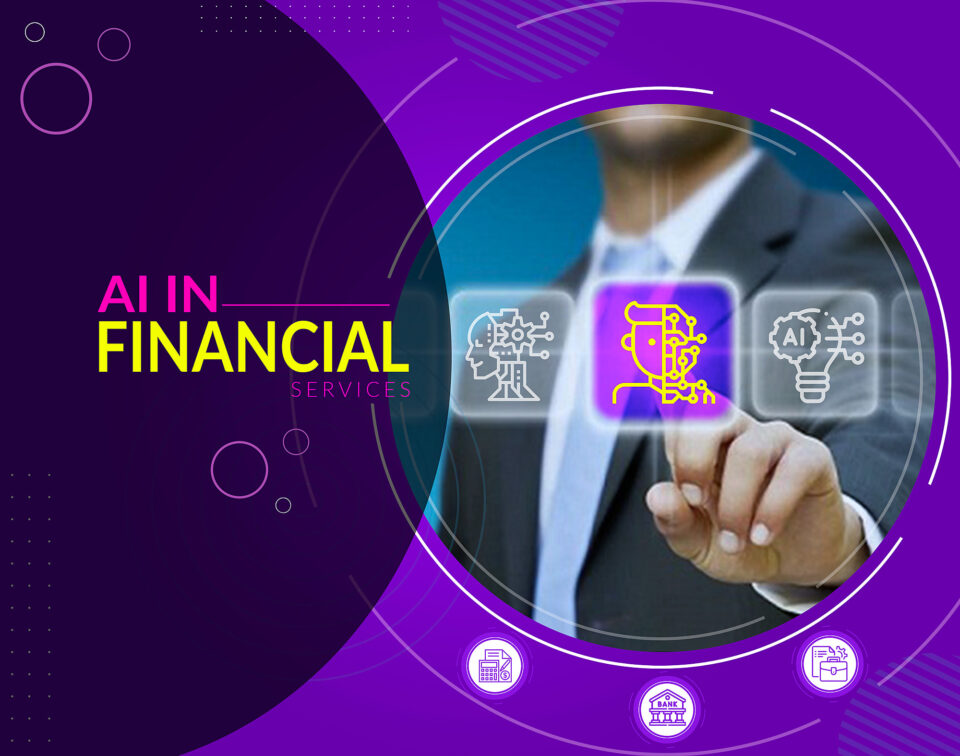FCA announced in 2019 it is partnering with the Alan Turing Institute for the exploration of transparency of AI in the financial services domain. In this article, we shall be dealing with the opportunities, challenges, and issues involved with AI with special limelight on the role of transparency in pursuing AI tech in the financial services sphere to enhance the overall client experience. This shall state the transformative impact of AI on the delivery of financial services.
What Is AI?
AI adoption is now poised to soar.AI is a mimic of Human intelligence. The technology earlier was just to develop computers to make the work of humans easy but now is an era whereby computers(robots) are inbuilt with technology which has started thinking like humans.
The informal definition of it is whatever machines cannot do yet but humans can few people argue about computers playing chess or image recognition but every time a new barrier is broken by a new technology development the definition and concept alter about AI. If a human cannot tell the difference between a machine and a human in that case the machine (later case) is said to be intelligent. Machine learning is a subset of AI and deep learning is a subset of machine learning.
Interesting AI Statistics For 2022:
-
AI-powered voice assistants to touch the 8 billion mark by 2023.
-
By end of 2025, the AI market globally is expected to be about $60 billion.
-
Voice Assistant Alexa’s skills are accessible in the US with approximately 66,000 skills.
-
Global GDP to grow by $15.7 trillion by 2030 thanks to AI.
-
AI can increase business productivity by 40%.
-
AI startups have grown by 14 times in the past 10 years.
-
Investment in AI startups grew 6 times since 2000.
-
Already 77% of the devices we use feature one form of AI or another.
Read: Let’s Understand Crypto In A Layman Language
AI Challenges And Guiding Principles
-
AI developers should know about the accuracy, conceptual validity, recency, completeness, and representativeness of data that AI systems draw on during their operation and data used in their development.
-
A second consideration should be machine learning, models can hold a number of features, such as adaptivity, opacity, and non-intuitiveness, that makes them appropriate for varied uses.
-
AI can easily revolutionize the structure of technology supply chains. For example, AI systems can lead to further complexity in supply chains and increases in outsourcing from third parties.
-
The last parameter the report highlights concerns the impact of AI both ways. An example might consist of the human replacement with an AI for business tasks.
-
Moreover, where a third-party AI strategy is used for multiple industries whereby its potential is amplified in the success/failure of the respective third party’s AI both with positive and negative impacts.
-
While navigating these parameters, this report highlights a few specific concerns that might come up about an AI System: the system’s performance and its compliance with the necessary legal requirements like the PRA rulebook, FCA handbook, and data protection laws. The ability to embrace AI flawlessly with appropriate human oversight shall create a good social and economic impact. The analyzer is reminded of AI ethics principles that serve to guide the adoption of AI- fairness, sustainability, and transparency.
AI Benefits And Harms In Financial Services
Investments in financial AI in the United States tripled between 2013 and 2014 to a total of $12.2 billion. AI has an intrinsic approach like a credit rating system which indeed suggests lending and borrowing based on past trends and statistics. Moreover the presence of robo-advisers that design customized investment portfolios for investors is proving to be a boon for them, thereby eliminating the need for intermediaries and financial advisors who looted them for obvious reasons.
-
Where an AI system provides the client with the most suitable financial services it thereby also screens the customers so that it can prevent fraud and eliminate biased treatment of clients, thereby providing them the investment strategies for consumer empowerment.
-
AI can be used in financial crime, with the avoidance of insider trading and market manipulation, enforcement, and prevention of fraud and money laundering.
-
AI can have both a direct and indirect effect on the market competitiveness.
-
AI has its own implications on the business’s stability and markets by ensuring prudential risks both at micro and macro levels.
-
AI could have a major impact such that it can strengthen cybersecurity for the protection of business.
What’s Next?
This report adheres not aim at the assessment of adequacy or the industry practices to address the challenges faced and the creation of opportunities by AI in the financial services sector. The report seeks to make aware of the challenges being posed and the relative concerns which are identified for the future regulatory and AI risk landscape. Although there is a vast expansion of the transparency principle in this article it also adheres that there is more work to be done while applying the conceptual framework towards transparency provided into specific use cases of AI in financial services and to determine transparency for AI.
In light of recent developments for AI regulation on a European level, it shall be interesting to see how UK regulators and FCA will use this report and take into consideration the risks it is highlighting. The necessity for transparency calls for, is to develop of the UK’s own AI regulatory framework.
Read: Cybersecurity Timeline and Trends You Should Know Before Planning for 2023
[To share your insights with us, please write to sghosh@martechseries.com]
